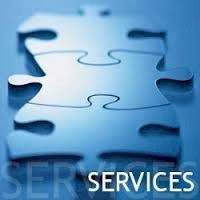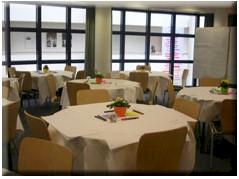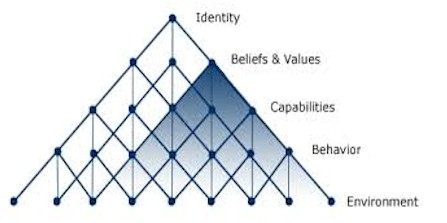|
||||||||||||||||||||||||||||||||||
| Services Offered by Deines & Associates | ||||||||||||||||||||||||||||||||||
| Coaching Services Coaching is an exciting profession whereby trained professionals assist individuals or teams to move forward creating the identity they want. Clients are encouraged to re-examine their values, set “SMART” goals according to their values and move forward experiencing success, balance and fulfillment faster than if they were to do this on their own. The coaching relationship, which is co-designed with the client, may last weeks, months or extend beyond a year. Anyone who wants to make a change in his or her life will benefit from coaching. Whether you are in a transition between careers, whether you want to improve the “flow” of your daily life, or whether you are a successful businessperson or executive, coaching will assist you in clarifying your directions and moving forward into action! “Words That Change Minds” LAB Profile As certified consultants and trainers for “Words That Change Minds” LAB (Language and Behavior patterns) Profile, we help organizations dramatically improve their communication about change with their own people. We offer:
Mediation ServicesDeines & Associates Coaching and Mediation offers clients a full spectrum of conflict resolution services. As professional mediators and workplace consultants, we offer:
|
||||||||||||||||||||||||||||||||||
|
Group Dialogue: The World Café The pattern embodied in the World Café process is based on seven design principles which are an integrated set of ideas and practices. Drawing on these principles, the World Café methodology is a simple, effective, and flexible format for hosting large group dialogue. The World Café can be modified to meet a wide variety of needs. Specifics of context, numbers, purpose, location, and other circumstances are factored into each event’s unique invitation, design, and question choice. The basic model is comprised of small group rounds and each round is prefaced with a question designed for a specific context and desired purpose of the session. After the small groups individuals are invited to share insights and other results from their conversations with the rest of the large group. A deeper understanding of the World Café offers a view that goes beyond a method to the recognition of conversation as a core meaning-making process. The natural cross-pollination of relationships, ideas, and meaning as people move from one conversation to others enables us to learn, explore possibilities, and co-create together. From this perspective, conversations are action - the very heartbeat and lifeblood of social systems like organizations, communities, and cultures.
|
|
|
Facilitating Change: Logical Levels of Thinking The NLP Logical Levels model describes the six levels: Vision/Purpose, Identity/Mission, Beliefs and Values, Capabilities/Strategies, Behaviours and Environment. Also known as the logical levels of change, and the neurological levels of thought, they are very useful for assisting with or understanding change from an individual, social or organization point of view. They were developed by Robert Dilts and are based on the "neurological levels" proposed by anthropologist Gregory Bateson. "The problems of today can only be solved at a higher level of thinking than that which created them" – Albert Einstein: I have heard many people refer to this quote and few can explain how you can actually do it (i.e. move to a higher level of thought). Using logical levels, you can easily explain it. For example, if there is a problem at the behavioural level, to solve it we must move to at least the capability/strategy level. NLP can assist in making change at the higher levels (beliefs and values, identity and vision/purpose) or can help you to ensure that your goals are aligned at all levels. Once this happens, your goals often become clear and obtained effortlessly.
|
|
|
Consulting Services NeuroScience of Leadership |
|
During the last two decades, scientists have gained a new, far more accurate view of human nature and behavior change because of the integration of psychology (the study of the human mind and human behavior) and neuroscience (the study of the anatomy and physiology of the brain).
Managers who understand the recent breakthroughs in cognitive science can lead and influence mindful change: organizational transformation that takes into account the physiological nature of the brain, and the ways in which it predisposes people to resist some forms of leadership and accept others. This does not imply that management — of change or anything else — is a science. There is a great deal of art and craft in it. But several conclusions about organizational change can be drawn that make the art and craft far more effective. These conclusions would have been considered counterintuitive or downright wrong only a few years ago. For example:
Change is pain. Organizational change is unexpectedly difficult because it provokes sensations of physiological discomfort.
Behaviorism doesn’t work. Change efforts based on incentive and threat (the carrot and the stick) rarely succeed in the long run.
Humanism is overrated. In practice, the conventional empathic approach of connection and persuasion doesn’t sufficiently engage people.
Focus is power. The act of paying attention creates chemical and physical changes in the brain.
Expectation shapes reality. People’s preconceptions have a significant impact on what they perceive.
Attention density shapes identity. Repeated, purposeful, and focused attention can lead to long-lasting personal evolution.
Where are these services offered?
Individual and team coaching, education, mediation and facilitation services are provided to clients on-site, at a mutually agreed location, over the telephone or in a retreat setting. At present, our focus is in Alberta, British Columbia and Germany.
| © 2015 - Deines & Associates |




